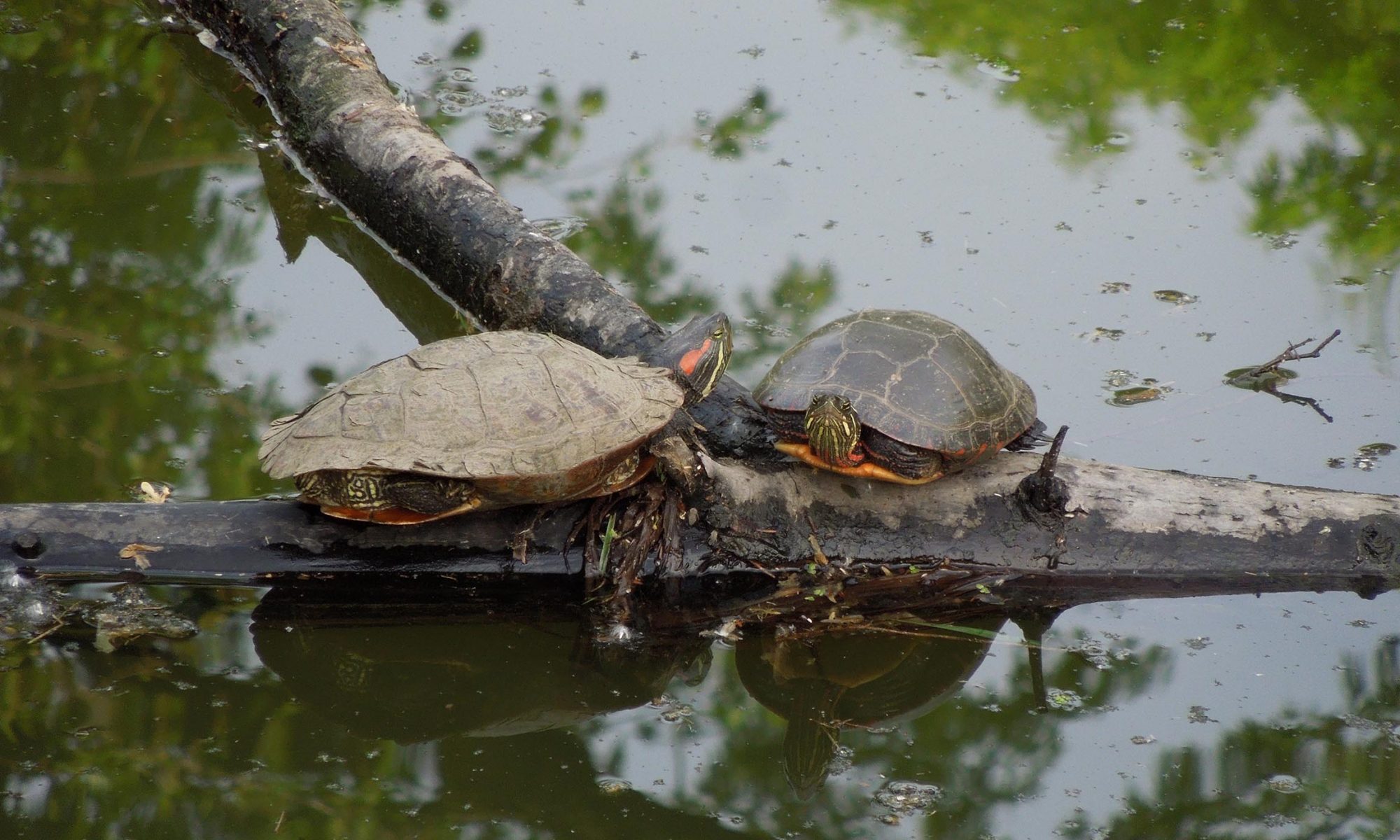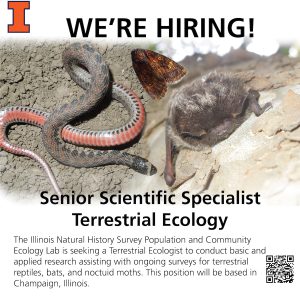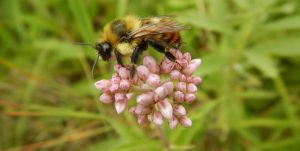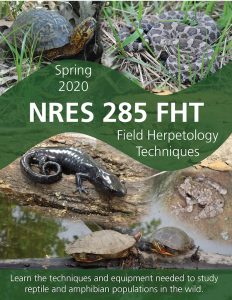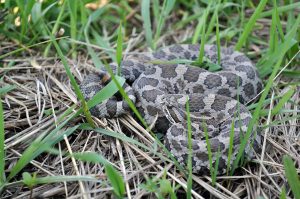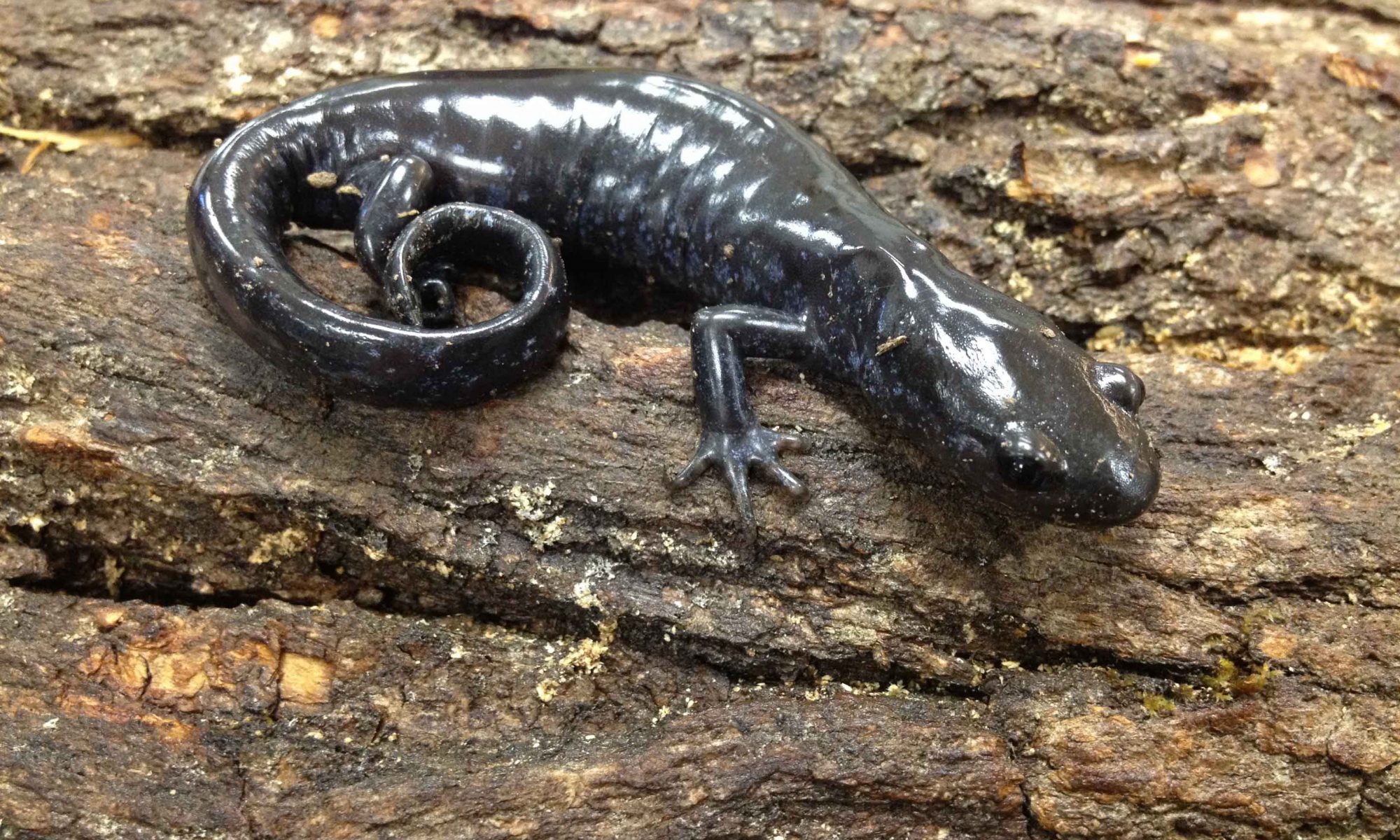A technician is sought to collect demographic data on amphibians collected from drift fence arrays surrounding vernal wetlands in central Illinois and reptiles from cover board arrays in old field and prairie habitats in central and northern Illinois. The technician will work independently and with others to collect data on amphibian and reptile demographics (identify, count, weigh, mark, and measure species). Records data manually and electronically into a database using a tablet. Prepares, under supervision, data summaries and quarterly reports. The technician will be responsible for decontamination of sampling equipment and boots, maintenance of equipment and fences, data entry, data management, tissue collection, amphibian and reptile marking and operate a variety of hand tools, electronics, and mechanical equipment such as 4WD vehicles and Utility Terrain Vehicles.
Work is performed in prairie and wooded environments where there is exposure to extremes of weather and temperature. The work requires moderate to strenuous physical exertion such as long periods of standing, walking over rough, uneven, rocky, steep, and muddy surfaces; bending, crouching, stretching, lifting, and carrying up to 40 lbs. Long hours in the field should be expected and some work on weekends may be required. Duration of the season will be from mid-January through August 2019.
For more information and requirements see: https://blogs.illinois.edu/view/7426/717784
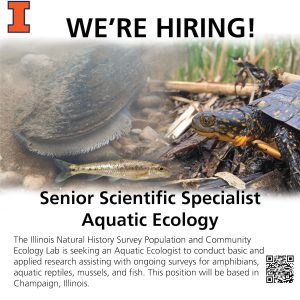 The Illinois Natural History Survey Population and Community Ecology Lab is seeking an Aquatic Ecologist to conduct basic and applied research assisting with ongoing surveys for aquatic amphibians and reptiles, freshwater mollusks, and fishes. This position will be based in Champaign, Illinois. See more or apply
The Illinois Natural History Survey Population and Community Ecology Lab is seeking an Aquatic Ecologist to conduct basic and applied research assisting with ongoing surveys for aquatic amphibians and reptiles, freshwater mollusks, and fishes. This position will be based in Champaign, Illinois. See more or apply